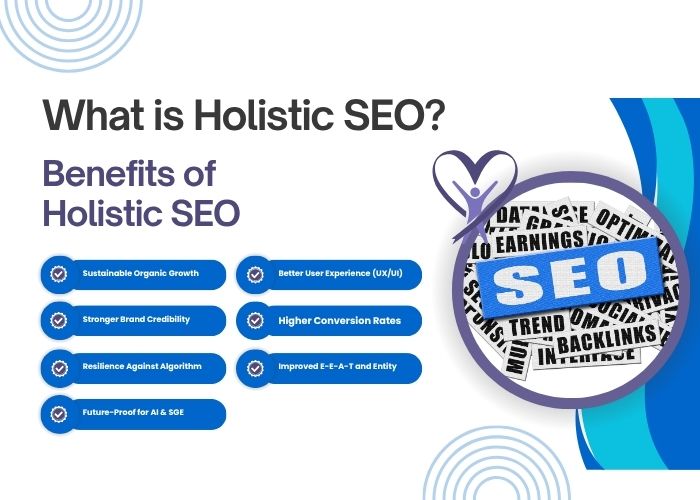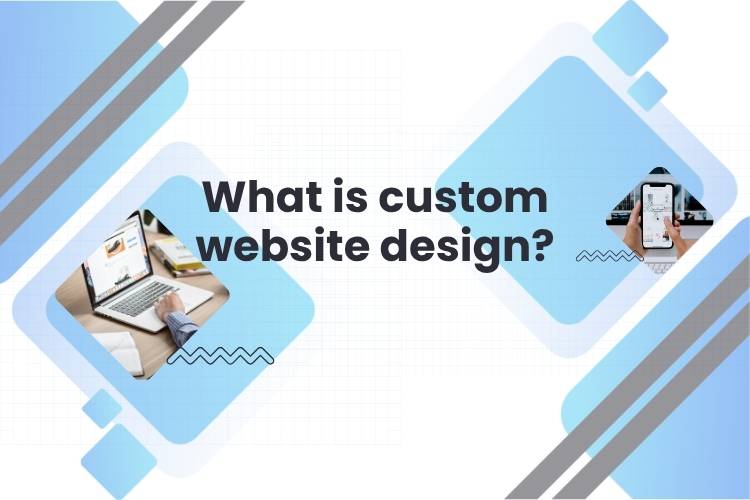Vietnam holistic SEO
What Is Holistic SEO?
Holistic SEO is not about ranking a handful of predefined keywords.
It is a comprehensive strategy that optimizes the entire website ecosystem—from technical foundations and content quality to user experience and brand authority.
Instead of focusing on isolated keywords, Holistic SEO aligns all website elements with real user search behavior and modern search engine requirements.
In practice, this means auditing and optimizing:
- Website architecture and source code (HTML, CSS, JavaScript)
- Data structure and indexing
- Page speed and performance
- User experience (UX/UI)
- URL structure and internal linking
- Content quality and topical coverage
- Backlinks and brand mentions
- Trust signals for search engines and AI systems
Holistic SEO is a long-term, multi-layered process—but when executed correctly, it delivers sustainable rankings, stable traffic, and strong competitive advantages that are difficult to replicate.
The True Nature of Holistic SEO
At its core, Holistic SEO is about building a strong, healthy, and future-proof website foundation.
It improves:
- Technical performance
- Content relevance and depth
- User engagement and conversions
- External authority through backlinks and media presence
A well-implemented Holistic SEO strategy significantly enhances overall website quality, making it more resilient to algorithm updates and competitive pressure.
Key Characteristics of Holistic SEO
- Broader keyword coverage, including long-tail and niche search terms
- Improved technical SEO with all critical issues resolved
- Optimized meta titles and meta descriptions
- Continuously updated, valuable content
- Longer user sessions and higher engagement
- Increased content sharing and brand visibility
- Higher conversion rates from visitors to real customers
Holistic SEO requires time and systematic execution—but the result is long-lasting, stable Google rankings that competitors find hard to surpass.
When Should Businesses Implement Holistic SEO?
Holistic SEO and keyword-focused SEO are not mutually exclusive.
Holistic SEO is the foundation.
Keyword SEO is the growth layer.
Businesses should not choose one over the other—they should follow the correct sequence.
Why Start With Holistic SEO?
Holistic SEO does not optimize individual keywords in isolation.
Instead, it covers the entire website with hundreds or even thousands of relevant search queries that reflect real customer intent.
This approach ensures:
- Sustainable growth
- Lower algorithmic risk
- Stable traffic streams
- Stronger long-term ROI
When Holistic SEO Is Essential
1. For New Websites
New websites struggle to rank competitive keywords immediately.
Holistic SEO helps by:
- Building SEO-friendly site architecture from day one
- Optimizing technical performance and UX
- Developing a long-term keyword strategy
The resulting data enables smarter keyword competition later.
2. To Dominate an Entire Industry
Holistic SEO allows a website to rank for:
- Primary keywords
- Secondary keywords
- Long-tail, intent-driven searches
As a result, customers searching for any related topic are more likely to encounter your brand—establishing industry authority and visibility.
3. To Fix Outdated or Problematic Websites
Common issues include:
- Slow page speed
- Broken links and chaotic structure
- Thin or outdated content
- Obsolete SEO techniques
Holistic SEO rebuilds everything from the ground up—technical SEO, content, structure, and UX—rather than patching individual keywords.
4. In Highly Competitive Markets
Relying on a few competitive keywords is often:
- Expensive
- Risky
- Easy for competitors to disrupt
Holistic SEO creates cumulative advantages: many small rankings combine into large, stable traffic volumes that support competitive keyword growth.
5. To Generate Stable and Diverse Customer Sources
Businesses offering multiple products or services benefit from traffic across varied search intents.
Holistic SEO reduces dependence on a single keyword group and distributes revenue opportunities more evenly.
6. To Reduce Paid Advertising Costs
Unlike paid ads:
- Visibility disappears when spending stops
- Costs increase with competition
Holistic SEO is a long-term investment that delivers:
- Consistent rankings
- Daily organic traffic
- Reduced reliance on paid channels
7. To Build Brand Trust and Authority
Frequent top rankings across many searches:
- Build customer trust naturally
- Increase brand recognition
- Strengthen credibility with both users and Google
Holistic SEO builds brand equity—not just traffic.
8. As a Foundation for GEO (Generative Engine Optimization)
To be cited by AI systems such as ChatGPT, Gemini, or Copilot, websites must have:
- Clear SEO structure
- High-quality, trustworthy content
- Optimized speed, UX, and schema
Holistic SEO is the prerequisite for effective GEO strategies.
Six Core Tasks in Holistic SEO Implementation
1. Industry and Keyword Research
We analyze customer search behavior, intent, timing, and trends to build a strategic keyword framework aligned with business goals.
2. Technical SEO Audit and Optimization
Key tasks include:
- robots.txt and sitemap.xml setup
- Indexing and canonical fixes
- Duplicate content resolution
- Performance optimization (cache, compression, lazy loading)
- JavaScript and CSS optimization
- Core Web Vitals improvement
- URL structure and redirects
- Mobile-friendliness
- Security and HTTPS consistency
- Structured data and schema
- Internal linking and site depth optimization
3. Content Strategy and Optimization
Effective content must:
- Be organized into topical clusters
- Address real user needs
- Integrate keywords naturally without stuffing
4. User Experience (UX/UI) Enhancement
We focus on:
- Page speed
- Cross-device usability
- Conversion optimization (forms, calls-to-action, lead flows)
5. Backlink and Authority Building
We prioritize quality over quantity:
- Relevant, authoritative sources
- Editorial and media coverage
- Toxic backlink monitoring and removal
6. Continuous Monitoring and Optimization
Using tools such as Google Search Console, Analytics, Ahrefs, and Semrush, we track performance and adapt strategies to algorithm updates.
Measuring Holistic SEO Quality
Businesses should evaluate SEO results through:
- Indexation health
- Keyword performance trends
- Content quality and engagement
- Backlink profile integrity
- Competitive benchmarking
- Continuous improvement cycles
Holistic SEO Pricing Factors
Pricing depends on:
- Website size and complexity
- Industry competitiveness
- Business goals and growth targets
- Required content volume and technical depth
- Timeline and service model (monthly, project-based, task-based)
Holistic SEO is a long-term investment—typically 6 to 12 months—that delivers compounding returns.
Common Mistakes in Holistic SEO
- Ignoring user value
- Lack of content planning
- Neglecting technical SEO
- Low-quality backlink building
- Poor performance measurement
- Weak cross-team collaboration
- Choosing SEO providers based solely on price
Partnership Invitation
Viet SEO does not promise instant rankings.
We build sustainable, safe, and future-ready SEO foundations.
With over 18 years of experience, Viet SEO delivers holistic SEO strategies that adapt to algorithm changes and support long-term business growth.
Contact Viet SEO today for consultation and quotation:
📞 +84 917 212 969 (Mr. Viet)



